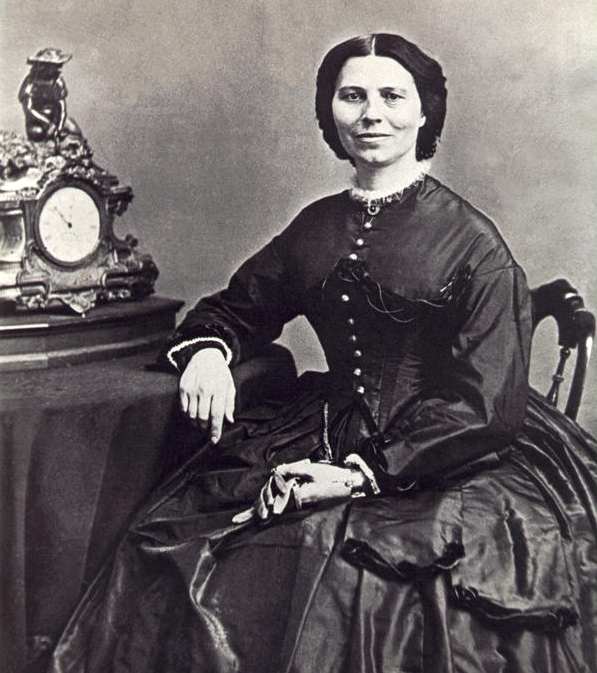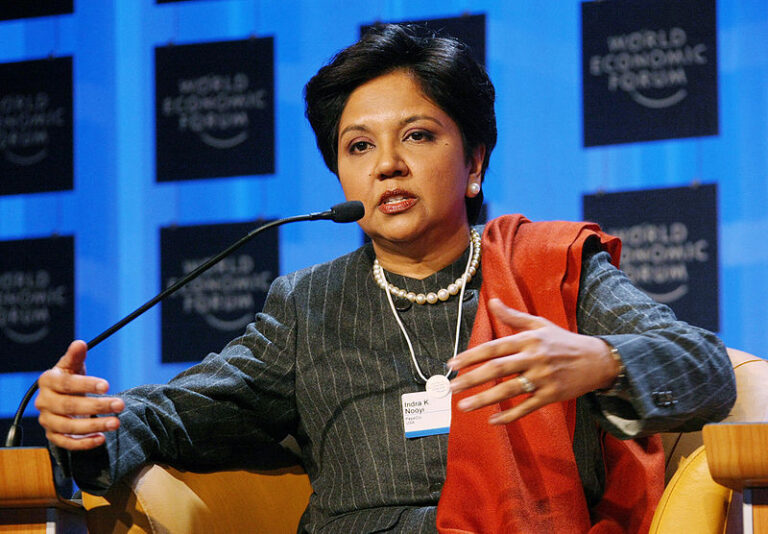Malala Yousafzai: A Tale of Resilience and Leadership

Embarking on Malala’s Inspiring Leadership Journey
Malala Yousafzai, a young woman whose name has become synonymous with courage, resilience, and the fight for girls’ education, has emerged as an inspirational global leader. Born in the picturesque Swat Valley of Pakistan, Malala defied the odds, faced adversity, and emerged as a beacon of hope for millions of children, especially girls, who struggle to access quality education. This article delves deep into her incredible journey, her leadership traits, and the lessons she offers to aspiring leaders worldwide.
Brief background of Malala Yousafzai
Malala Yousafzai was born on July 12, 1997, in Mingora, Swat District, Pakistan. Raised in a family that valued education, Malala’s father, Ziauddin Yousafzai, a teacher and educational activist, inspired her passion for learning. As a child, she witnessed the devastating effects of the Taliban’s oppressive rule on education, particularly for girls. At the tender age of 11, she took a stand against the Taliban’s edicts, advocating for her right and that of other girls to attend school.
Overview of her leadership journey
Malala’s leadership journey began when she started voicing her concerns about education through an anonymous blog for BBC Urdu. As her message gained traction, she garnered both local and international attention, which eventually led to a violent response from the Taliban. In October 2012, Malala was targeted and shot in an assassination attempt, an event that propelled her onto the global stage.
As Malala recovered from the attack, her resolve to fight for education only grew stronger. She went on to establish the Malala Fund, deliver a historic speech at the United Nations, and receive the Nobel Peace Prize – all before turning 18. Today, Malala continues to be a champion for education and an advocate for girls’ rights worldwide.
Importance of studying Malala’s leadership style
Malala Yousafzai’s story offers invaluable insights into the makings of an effective and compassionate leader. Through her unwavering courage, empathy, and vision, she has demonstrated the power of leading by example and the impact one individual can have on the world. By examining her journey, aspiring leaders can glean essential lessons about standing up for what they believe in, building resilience in the face of adversity, and harnessing the power of education to transform lives.
In this article, we will explore Malala’s early life and education advocacy, the assassination attempt and her rise to global prominence, her key leadership traits, and her role as a global ambassador for education. The lessons drawn from her journey will serve as a guiding light for those who wish to make a positive impact on the world and inspire change.
Early Life and Education Advocacy
Malala’s childhood in Swat Valley, Pakistan
Malala Yousafzai was born and raised in a close-knit family in the Swat Valley, a region known for its breathtaking natural beauty. Despite the region’s idyllic setting, the area was plagued by unrest and conflict, as the Taliban sought to establish control and impose their rigid interpretation of Islamic law. This environment played a pivotal role in shaping Malala’s perspective and her passion for education.
Impact of the Taliban’s rule on education
The Taliban’s rule brought about a harsh reality for the residents of the Swat Valley. They imposed strict regulations on all aspects of life, including a ban on television, music, and most notably, girls’ education. The latter had severe consequences, as thousands of girls were forced to abandon their schooling. The Taliban destroyed over 400 schools, depriving countless children of their fundamental right to education.
Malala’s early life was heavily influenced by the Taliban’s actions, as she witnessed her friends and classmates lose their access to education. These experiences fueled her determination to speak out against the injustices and advocate for the right to education for every child.
Malala’s father’s influence on her passion for education
Ziauddin Yousafzai, Malala’s father, played a significant role in shaping her passion for education. As an educator himself, he founded and ran a chain of schools in the Swat Valley. Ziauddin believed that education was the key to a brighter future, not only for Malala but for all children, regardless of their gender. He instilled in Malala a strong sense of self-worth and encouraged her to pursue her dreams.
Malala often credits her father for inspiring her to use her voice for change. He provided her with the platform and support she needed to advocate for girls’ education, even in the face of considerable danger.
The anonymous blog for BBC Urdu
In 2009, at the age of 11, Malala began writing an anonymous blog for BBC Urdu under the pseudonym “Gul Makai.” Through her blog, she provided a rare glimpse into life under the Taliban’s rule, sharing her experiences and highlighting the importance of education. Her words painted a vivid picture of the challenges faced by children, particularly girls, in the Swat Valley.
As the blog gained attention, Malala’s identity was eventually revealed, and she began to receive local and international recognition for her advocacy efforts. This exposure brought with it both admiration and threats, as her message challenged the Taliban’s authority. Despite the risks, Malala remained steadfast in her commitment to education and continued to speak out against the injustices she witnessed.
The Assassination Attempt and Global Recognition
The attack on Malala and its aftermath
On October 9, 2012, Malala’s life changed forever. As she was riding home from school on a bus with her friends, a masked gunman boarded the vehicle, asked for Malala by name, and shot her in the head. Two of her friends were also injured in the attack. The Taliban claimed responsibility, stating that Malala’s advocacy for girls’ education and her criticism of their regime justified their actions.
Malala was critically injured and barely clinging to life. She was initially treated in Pakistan, but as her condition stabilized, she was flown to the United Kingdom for further treatment and rehabilitation. The attack on Malala sparked international outrage and brought attention to the plight of millions of children deprived of education, particularly girls, in conflict-affected regions.
International response and support for Malala
The assassination attempt on Malala’s life sent shockwaves across the globe. World leaders, activists, and ordinary citizens alike expressed their support for her and her cause. Her story was covered extensively by international media, and she became a symbol of the struggle for girls’ education worldwide.
Thousands of people signed petitions and participated in demonstrations, demanding that the Pakistani government prioritize education and ensure the safety of students like Malala. Global leaders voiced their support, with then-UN Secretary-General Ban Ki-moon calling her “a symbol of hope, a daughter of the United Nations.” The attack on Malala catalyzed a global movement for girls’ education, further amplifying her message.
Malala’s recovery and continued activism
Malala’s recovery from the attack was nothing short of miraculous. After multiple surgeries and extensive rehabilitation, she regained her strength and ability to speak. As she recovered, her resolve to fight for education only grew stronger. She refused to be silenced by the Taliban’s violence, and instead, she used her newfound global platform to amplify her message and advocate for the rights of girls and women.
In 2013, on her 16th birthday, Malala delivered an impassioned speech at the United Nations, calling for worldwide access to education. That same year, she established the Malala Fund, an organization dedicated to ensuring that every girl has access to 12 years of free, quality education.
Since her recovery, Malala has continued to be a leading voice in the fight for girls’ education and gender equality. Her unwavering commitment to her cause and her remarkable resilience have inspired countless people around the world and solidified her status as a global leader.
Malala’s Leadership Traits
Courage and resilience
-
Standing up against the Taliban
One of Malala’s most defining leadership traits is her remarkable courage. At a young age, she chose to challenge the oppressive Taliban regime, understanding the grave risks involved. Despite receiving threats, she refused to be silenced and continued to use her voice to demand change. Malala’s bravery in standing up against the Taliban serves as an inspiration to all who advocate for justice, equality, and human rights.
-
Overcoming adversity after the attack
The assassination attempt on Malala’s life could have easily broken her spirit, but she emerged even stronger and more determined. Her resilience during her recovery and her unwavering commitment to her cause in the face of adversity are testaments to her strength of character. Malala’s ability to overcome such a traumatic experience and transform it into a force for good demonstrates her extraordinary capacity for resilience.
Empathy and compassion
-
Advocating for marginalized communities
Malala’s leadership is rooted in empathy and compassion. She has consistently shown a deep understanding of the struggles faced by marginalized communities, particularly those affected by conflict, displacement, and poverty. Malala’s advocacy for the rights of girls, refugees, and other vulnerable populations stems from her own experiences and her desire to create a more equitable world.
-
Malala’s support for refugees
In recent years, Malala has also become an advocate for the rights of refugees, who often face significant barriers to accessing education. She has visited refugee camps in countries such as Jordan, Kenya, and Lebanon to raise awareness of the challenges faced by displaced children and to advocate for their right to education. Her empathy and compassion for those who have experienced immense suffering drive her efforts to create meaningful change.
Vision and commitment
-
Malala’s focus on education
Malala’s leadership is characterized by a clear and unwavering vision: ensuring that every child has the opportunity to receive an education. She believes that education is the key to breaking the cycle of poverty, empowering individuals, and fostering peace. Malala’s commitment to her vision has driven her to speak at global forums, engage with world leaders, and establish the Malala Fund to create tangible change in the lives of girls worldwide.
-
Founding the Malala Fund
In 2013, Malala, along with her father, established the Malala Fund, a nonprofit organization dedicated to championing girls’ education. The Malala Fund works to break down barriers that prevent girls from accessing education, such as poverty, conflict, and discrimination. Through targeted investments in local education initiatives, the Malala Fund has had a direct impact on the lives of thousands of girls across the globe. Malala’s vision and commitment to her cause have made the Malala Fund a leading force in the fight for girls’ education.
Malala as a Global Ambassador for Education
Addressing the United Nations
On July 12, 2013, Malala celebrated her 16th birthday by delivering a powerful and moving speech at the United Nations. Her address, which was attended by over 500 youth delegates and numerous world leaders, focused on the importance of education and the need for global action to ensure that every child has access to quality schooling. Malala’s speech at the United Nations not only demonstrated her eloquence and wisdom beyond her years but also solidified her role as a global ambassador for education.
In her address, Malala emphasized that education is a fundamental human right, stating, “One child, one teacher, one book, and one pen can change the world.” Her words resonated with people worldwide, inspiring individuals, organizations, and governments to prioritize education and invest in the future of children.
Receiving the Nobel Peace Prize
In recognition of her courageous advocacy for girls’ education and her resilience in the face of adversity, Malala Yousafzai was awarded the Nobel Peace Prize in 2014. At just 17 years old, she became the youngest-ever Nobel laureate, a testament to her remarkable achievements and the global impact of her message.
In her Nobel acceptance speech, Malala called for unity in the fight for education, urging world leaders to prioritize the needs of the most vulnerable children. She also highlighted the importance of empowering girls, stating, “I tell my story, not because it is unique, but because it is the story of many girls.” Through her words and actions, Malala continues to inspire others to join the global movement for girls’ education and gender equality.
Malala’s advocacy for girls’ education worldwide
As a global ambassador for education, Malala has traveled to numerous countries to raise awareness about the barriers that prevent girls from accessing education and to advocate for policy changes that support their rights. Her advocacy work has taken her to countries such as Nigeria, where she met with the families of the kidnapped Chibok schoolgirls, and to refugee camps in Lebanon, where she highlighted the challenges faced by displaced Syrian children.
In addition to her travels and speeches, Malala has also used her platform to engage with world leaders, including presidents, prime ministers, and royalty, urging them to prioritize girls’ education and allocate resources to ensure that every child has the opportunity to learn.
Through her role as a global ambassador for education, Malala continues to inspire change and make a lasting impact on the lives of millions of children around the world. Her unwavering commitment to her vision serves as a powerful reminder of the transformative power of education and the potential it holds to create a brighter future for all.
Leadership Lessons from Malala Yousafzai’s Journey
Leading by example
One of the most profound leadership lessons from Malala’s journey is the power of leading by example. Despite being a young girl facing immense adversity, Malala has consistently demonstrated courage, resilience, and unwavering commitment to her cause. By embodying these qualities, she has inspired countless individuals around the world to take action and fight for what they believe in. Aspiring leaders can learn from Malala’s example that the most effective way to inspire change is to embody the values and principles they advocate for.
Harnessing the power of education
Malala’s journey also underscores the transformative power of education. By advocating for the right to education for every child, she has demonstrated that education is a critical tool for empowering individuals, fostering peace, and breaking the cycle of poverty. Aspiring leaders can take inspiration from Malala’s commitment to education and recognize that investing in the intellectual and emotional growth of their team members and communities is crucial for creating lasting change.
Turning adversity into opportunity
Malala’s ability to transform a traumatic experience into a catalyst for change offers an invaluable lesson for aspiring leaders. Rather than allowing the assassination attempt to silence her, she used it as an opportunity to amplify her message and inspire a global movement for girls’ education. This teaches future leaders the importance of resilience and adaptability in the face of adversity. By embracing challenges and turning them into opportunities for growth, leaders can create positive change and inspire others to follow suit.
Embracing empathy and compassion
Malala’s empathetic and compassionate approach to leadership is another lesson for future leaders. She has consistently shown a deep understanding of the struggles faced by marginalized communities and has used her platform to advocate for their rights. Leaders can learn from Malala’s example that empathy and compassion are essential qualities for effective leadership, as they foster connections, bridge divides, and inspire action.
Building a global community of change-makers
Malala’s journey highlights the importance of collaboration and building a global community of change-makers. Through her advocacy work, she has engaged with individuals, organizations, and governments worldwide to advance the cause of girls’ education. Aspiring leaders can learn from Malala’s example that by connecting with like-minded people, sharing ideas, and working together, they can create a powerful force for change on a global scale.
Believing in the power of one
Finally, Malala’s journey teaches us that every individual has the potential to make a difference, regardless of their age, background, or circumstances. Her story demonstrates that by believing in the power of one, even a young girl from a remote village in Pakistan can become a global symbol of hope and an inspiration for millions. This lesson serves as a powerful reminder for aspiring leaders that no matter how small their actions may seem, they have the potential to create a ripple effect that can change the world.
Malala’s Legacy and Impact on Future Generations
Inspiring young activists
Malala’s journey has inspired a new generation of young activists who are passionate about social justice and equality. Across the globe, young people are raising their voices, advocating for change, and taking action on issues that matter to them, such as climate change, gender equality, and access to education. Malala’s example has shown that age is not a barrier to making a difference and that the power to create change lies in the hands of every individual, regardless of their background or circumstances.
Breaking stereotypes and challenging norms
Malala’s activism and achievements have broken stereotypes and challenged societal norms, particularly in terms of gender roles and expectations. By advocating for girls’ education and asserting her right to learn, Malala has directly confronted the patriarchal norms that often restrict opportunities for women and girls. Her resilience and determination have demonstrated that young girls can be leaders and change-makers, inspiring countless others to challenge stereotypes and pursue their dreams.
Promoting education as a global priority
Malala’s advocacy has played a significant role in promoting education as a global priority. Through her speeches, writings, and the work of the Malala Fund, she has raised awareness about the importance of education and the barriers that millions of children, particularly girls, face in accessing it. Her efforts have contributed to increased investments in education, the adoption of more inclusive education policies, and the development of initiatives to ensure that all children have the opportunity to learn.
Empowering girls and women worldwide
Malala’s work has had a profound impact on the lives of girls and women around the world. By advocating for their right to education, she has helped to empower countless girls and women, providing them with the knowledge, skills, and opportunities to shape their own futures. Her efforts have also contributed to the broader movement for gender equality, promoting the rights of girls and women in all aspects of life.
Encouraging dialogue and understanding
Through her activism and engagement with diverse communities, Malala has fostered dialogue and understanding across cultural, religious, and political divides. By sharing her story and experiences, she has challenged misconceptions and stereotypes, encouraging people to see beyond their differences and work together for a more inclusive and equitable world. Malala’s commitment to dialogue and understanding serves as a powerful reminder that empathy and compassion are essential for effective leadership and lasting change.
A lasting legacy
Malala’s legacy extends far beyond her personal accomplishments and the work of the Malala Fund. Her journey serves as a testament to the power of the human spirit, the transformative potential of education, and the ability of one individual to inspire change on a global scale. As future generations continue to face the challenges of a rapidly changing world, Malala’s story will endure as a powerful reminder of the importance of resilience, courage, and the unwavering pursuit of justice and equality.
Applying Malala’s Leadership Lessons in Everyday Life
Cultivating courage in the face of fear
Malala’s fearlessness in the face of adversity serves as a powerful reminder that courage is not the absence of fear, but the ability to face it and take action despite it. Aspiring leaders can apply this lesson in their everyday lives by acknowledging their fears and finding ways to overcome them. This may involve taking calculated risks, speaking out for what is right, or embracing new opportunities that challenge the status quo.
Embracing lifelong learning and personal growth
Malala’s commitment to education demonstrates the value of lifelong learning and personal growth. Aspiring leaders can adopt this mindset by seeking out opportunities to expand their knowledge, develop new skills, and explore diverse perspectives. This may involve reading books, attending workshops or conferences, engaging in meaningful conversations, or pursuing further education. By prioritizing learning and personal development, leaders can better adapt to change and continuously improve their effectiveness.
Practicing empathy and active listening
Malala’s empathetic leadership approach highlights the importance of understanding the needs, feelings, and experiences of others. Aspiring leaders can apply this lesson by practicing empathy and active listening in their everyday interactions. This involves genuinely engaging with others, asking open-ended questions, and listening attentively to their responses. By fostering empathy and understanding, leaders can build stronger relationships, inspire trust, and create a more inclusive and supportive environment.
Focusing on impact and purpose
Malala’s unwavering commitment to her cause demonstrates the power of a clear sense of purpose and a focus on creating meaningful impact. Aspiring leaders can apply this lesson by reflecting on their own values and passions, and considering how they can align their actions with their greater purpose. This may involve setting clear goals, pursuing initiatives that align with their values, or using their skills and resources to make a positive difference in their communities.
Building a supportive network
Malala’s success in creating a global movement for girls’ education highlights the importance of building a supportive network of like-minded individuals. Aspiring leaders can apply this lesson by connecting with others who share their interests, values, and goals. This may involve attending networking events, joining online forums or social media groups, or volunteering for organizations that align with their passions. By cultivating a strong network, leaders can access valuable resources, share ideas, and collaborate more effectively to achieve their goals.
Celebrating small victories and embracing failure
Malala’s journey teaches us the importance of celebrating small victories and learning from failure. Aspiring leaders can apply this lesson by recognizing and celebrating their achievements, no matter how small, and using setbacks as opportunities for growth and learning. This may involve reflecting on what went wrong, identifying lessons learned, and developing strategies to improve future outcomes. By embracing failure and focusing on continuous improvement, leaders can foster a growth mindset and build resilience in the face of adversity.
Malala Yousafzai’s incredible journey offers invaluable leadership lessons that can be applied in everyday life. By embodying her courage, resilience, empathy, and commitment to making a difference, aspiring leaders can create lasting positive change in their lives and the world around them.
The Lasting Impact of Malala Yousafzai’s Leadership
Malala Yousafzai’s extraordinary journey serves as a powerful testament to the transformative power of courageous leadership, unwavering determination, and a clear sense of purpose. From a young age, she has shown the world that even in the face of immense adversity, it is possible to make a difference and inspire change on a global scale. Her relentless advocacy for girls’ education, her resilience in overcoming challenges, and her compassion for marginalized communities have made her a symbol of hope and an inspiration to millions.
Throughout her journey, Malala has offered invaluable leadership lessons that can be applied by individuals from all walks of life. Her example teaches us the importance of leading by example, harnessing the power of education, turning adversity into opportunity, and building a global community of change-makers. Malala’s story is a reminder that every individual, regardless of their age or circumstances, has the potential to make a difference in the world.
As we move forward in an increasingly complex and interconnected world, Malala Yousafzai’s leadership will continue to serve as a guiding light for future generations. Her unwavering commitment to education and gender equality, her ability to bridge divides and foster understanding, and her tireless efforts to empower girls and women worldwide will have a lasting impact on our global society.
In conclusion, Malala Yousafzai’s legacy is not just about her personal accomplishments or the work of the Malala Fund. It is about the indelible mark she has left on the hearts and minds of people around the world, inspiring them to take action, to believe in the power of one, and to strive for a more just, equitable, and compassionate world. Her example is a powerful reminder that the most effective leaders are those who lead with courage, empathy, and an unwavering commitment to creating a better future for all.






